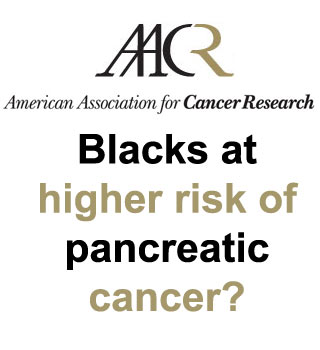
Experts are being challenged to treat pancreatic cancer as it appears to be a rapidly lethal disease. Apparently the screening tests to detect the cancer are not good and the symptoms do not show until the disease has spread, so most people die within two years of diagnosis. This is the opinion of Lauren D. Arnold, Ph.D., M.P.H., and postdoctoral research associate in the department of surgery at Washington University in St. Louis.
Adding to it, Arnold commented “Reducing overweight/obesity and smoking will help reduce pancreatic cancer overall, as well as prevent other diseases.”
Information obtained from the National Cancer Institute statistics showed that pancreatic cancer apparently claimed the lives of black Americans more than the whites. Blacks supposedly had a 32 percent higher death rate between 2001 and 2005.
The risk factors for pancreatic cancer were inspected and were separately assessed among black and white participants by Arnold and his colleagues. Data from the Cancer Prevention Study II (CPS-II) was used. They evaluated whether these risk factors explained differences in frequency and mortality. More than one million participants seemed to be enlisted in 1982 by CPS- II that is a longitudinal study. Information such as race/ethnicity, medical history and health habits were supplied by the participants. The cancer deaths in the CPS- II were tracked by the researchers and the results were evaluated.
The findings claimed that irrespective of gender and race, smoking was the biggest risk for pancreatic cancer. As the BMI increases, the risk for pancreatic cancer also apparently rises. If one compares the race, it seemed that blacks had a 42 percent increased risk of pancreatic cancer death compared to whites. From the analysis it was apparent that the excess risk of the disease remained even when all the risk factors were eliminated by the study experts.
Arnold commented “We hoped to find that by accounting for known and suspected pancreatic cancer risk factors, such as smoking, diabetes and BMI, and by looking at this in the context of race and gender, we’d be able to explain the higher rates of pancreatic cancer in blacks. Unfortunately, we were unable to explain these differences.”
Even though differences in risk factor patterns were claimed, in general they did not report for the pancreatic cancer mortality rates evident by race. This is the opinion of Maria Elena Martinez, Ph.D., M.P.H who is the Richard H. Hollen Professor of Cancer Prevention at the University of Arizona, director of the Cancer Health Disparities Institute at the Arizona Cancer Center, and an editorial board member for Cancer Epidemiology, Biomarkers & Prevention.
Maria Elena Martinez mentioned “The results most certainly point to the need for additional work to explain these racial disparities in risk of pancreatic cancer. Factors other than those assessed by the researchers may be responsible for the disparities. These can include unidentified lifestyle and/or environmental factors, genetic factors or unique gene-environment interactions.”
This study is different from the other earlier studies as it seems to explore variations in relationship to risks for pancreatic cancer. Adding to it, the research comes form a big group of cancer-free individuals and seems to scan their risk of developing pancreatic cancer over a long duration of time.
Arnold remarked “Our data do not explain what is causing these disparities, but we hope it encourages researchers to continue looking for reasons why blacks develop and die from pancreatic cancer at higher rates than whites. Clinicians who have patients with a family history of pancreatic cancer or other risk factors for the disease should communicate the benefits of losing weight and quitting smoking, if anything, to help reduce their risk of pancreatic cancer.”
Arnold observed one drawback with this study, supposedly that the higher death rates from an illness in particular populations may be the outcome of restricted or no access to health care. But previous studies have claimed that higher pancreatic cancer death rates in black is not caused due to difficulties related to access to health care. Both blacks and whites are diagnosed with pancreatic cancer in the relatively last stages of disease which makes the treatment complicated and survival low.
This study was published online in the journal Cancer Epidemiology, Biomarkers & Prevention of the American Association for Cancer Research.
